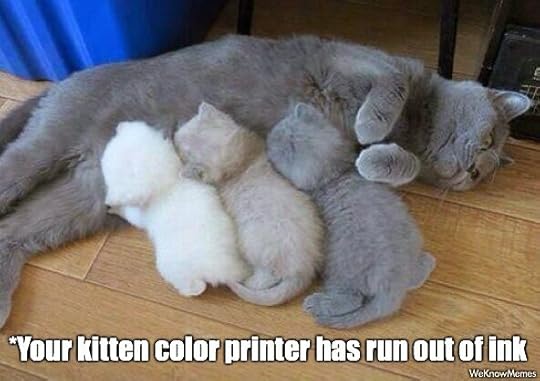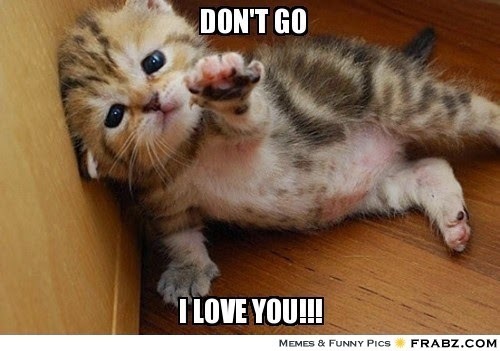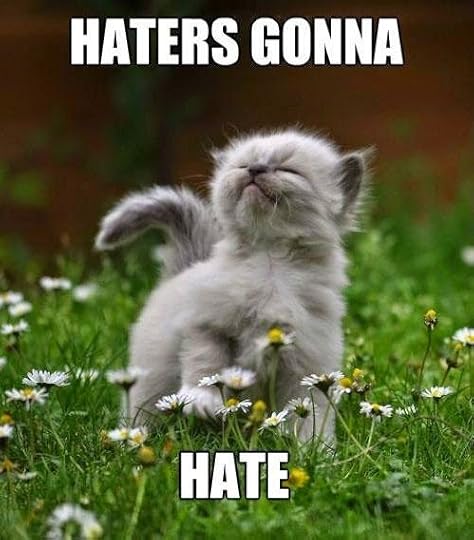The Collective Term for Kittens...?
Easy! I hear you cry. The collective term for a group of kittens is obvious. The answer is, "A litter of kittens."

WRONG.
The correct term is a "Kindle of kittens".This name is much older than the word litter, and first appears in connection with those bundles of cuteness we call kittens in the The Book of St Albans.
The Book of St Albans was a sort of Middle Age gentleman's almanac. Printed in 1486 it was perhaps more accurately known as The Book of Hunting, Hawking, and Blasing of Arms, which gives you a glimpse into what the priorities were of a well-heeled gent in the 15th century.

It seems likely the word's derivation comes from a Middle English word, kindelen, meaning to give birth to. In turn, this word probably come from an even older Norse word with the same meaning, kynda.
These days the word kindle is used more as a verb, meaning to set light to or to grow excitement. (Or, depending on your generation your thoughts may skip straight to a reading device.)

So here's a little test. What are the collective terms for the following: (Answers at the end – No peeking!)
A) BuffalosB) BearsC) FerretsD) RhinocerosesE) Giraffes

Answers:A) Not, it's not a herd of buffalos (that's what I would have said), but an obstinacy.B) Bears – I've never given this much thought before, but the answer is:- a sloth of bearsC) Before you say firkin ferrets (think about it), the correct response is a business of ferretsD) The term for a group of rhinoceroses is very descriptive: a crash
E) And last but not least, a tower of giraffes

WRONG.
The correct term is a "Kindle of kittens".This name is much older than the word litter, and first appears in connection with those bundles of cuteness we call kittens in the The Book of St Albans.
The Book of St Albans was a sort of Middle Age gentleman's almanac. Printed in 1486 it was perhaps more accurately known as The Book of Hunting, Hawking, and Blasing of Arms, which gives you a glimpse into what the priorities were of a well-heeled gent in the 15th century.

It seems likely the word's derivation comes from a Middle English word, kindelen, meaning to give birth to. In turn, this word probably come from an even older Norse word with the same meaning, kynda.
These days the word kindle is used more as a verb, meaning to set light to or to grow excitement. (Or, depending on your generation your thoughts may skip straight to a reading device.)

So here's a little test. What are the collective terms for the following: (Answers at the end – No peeking!)
A) BuffalosB) BearsC) FerretsD) RhinocerosesE) Giraffes

Answers:A) Not, it's not a herd of buffalos (that's what I would have said), but an obstinacy.B) Bears – I've never given this much thought before, but the answer is:- a sloth of bearsC) Before you say firkin ferrets (think about it), the correct response is a business of ferretsD) The term for a group of rhinoceroses is very descriptive: a crash
E) And last but not least, a tower of giraffes
Published on October 29, 2014 11:29
No comments have been added yet.
'Familiar Felines.'
Following on from last weeks Halloween posting, today's blog post looks at the unwanted image of cats as the witches familiar - from the Norse Goddess Freya to lonely women in the middle ages.
The full Following on from last weeks Halloween posting, today's blog post looks at the unwanted image of cats as the witches familiar - from the Norse Goddess Freya to lonely women in the middle ages.
The full post can found at:
http://graceelliot-author.blogspot.com
...more
The full Following on from last weeks Halloween posting, today's blog post looks at the unwanted image of cats as the witches familiar - from the Norse Goddess Freya to lonely women in the middle ages.
The full post can found at:
http://graceelliot-author.blogspot.com
...more
- Grace Elliot's profile
- 156 followers



